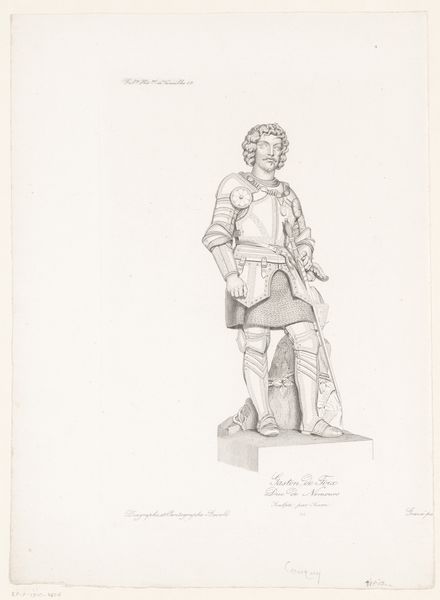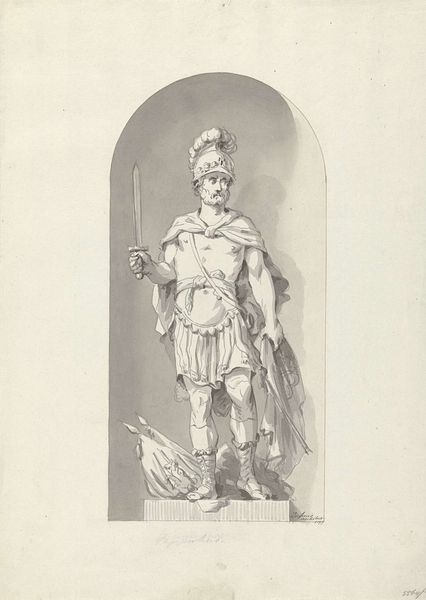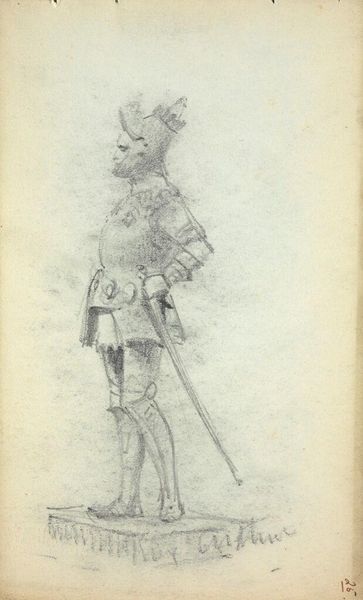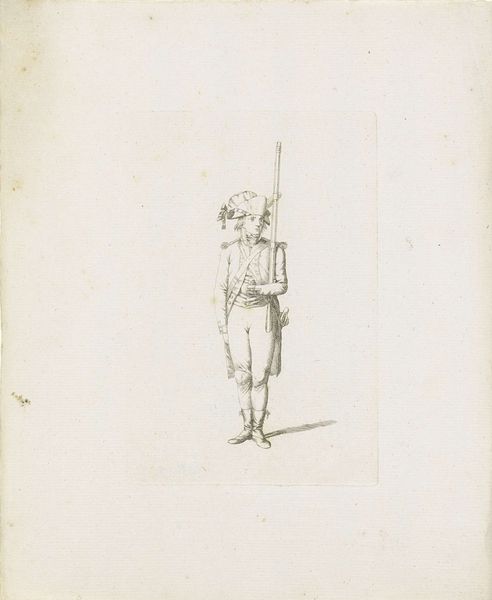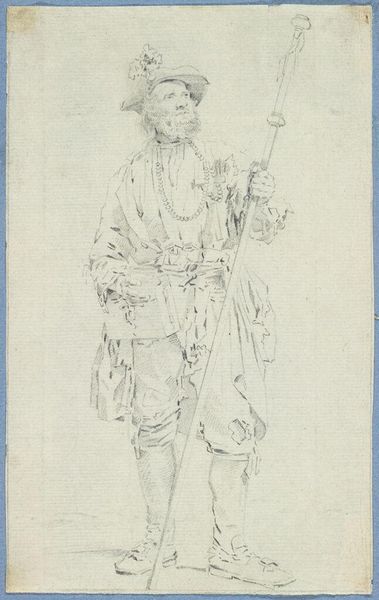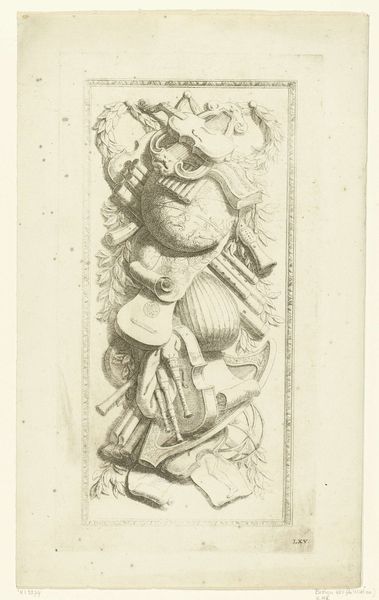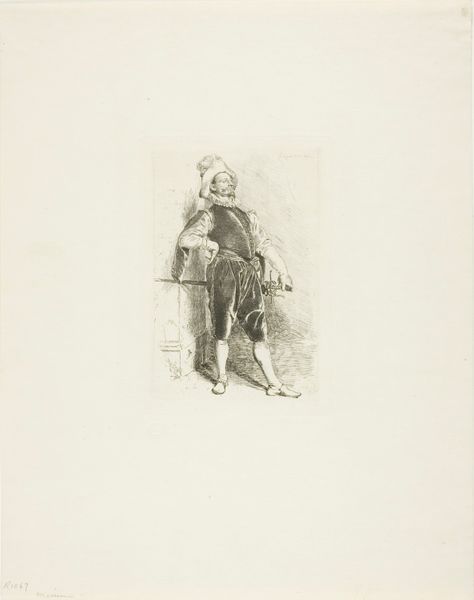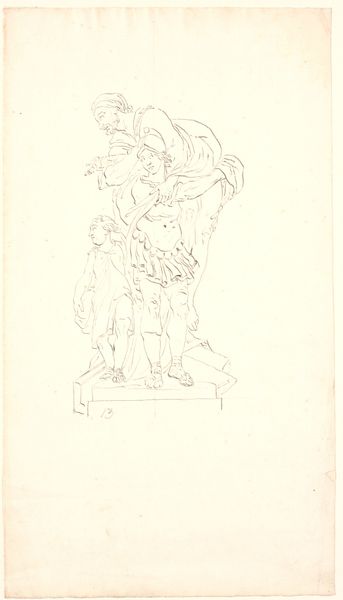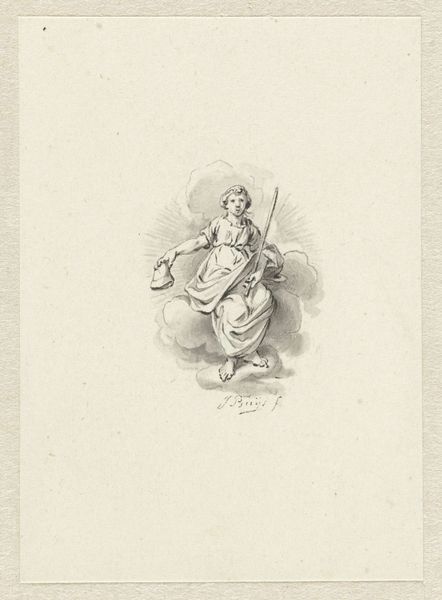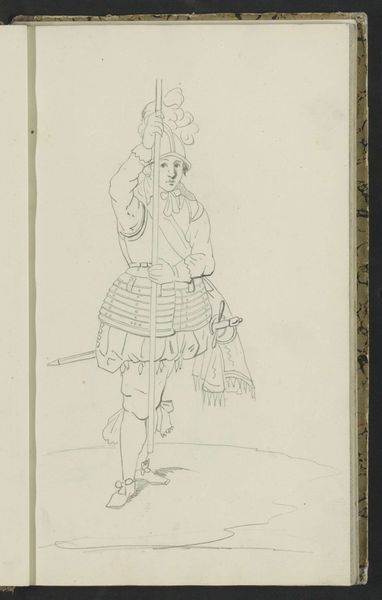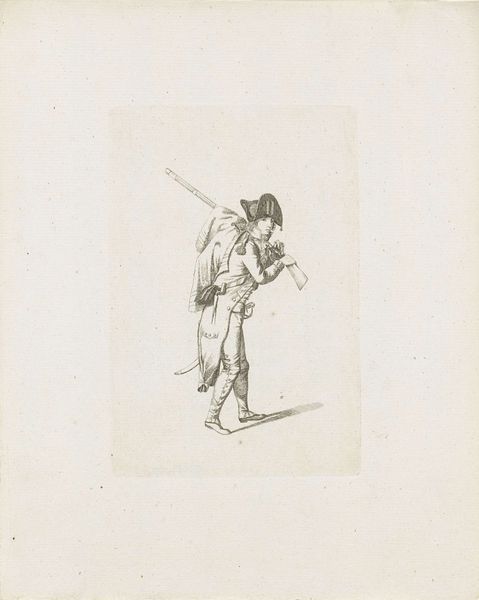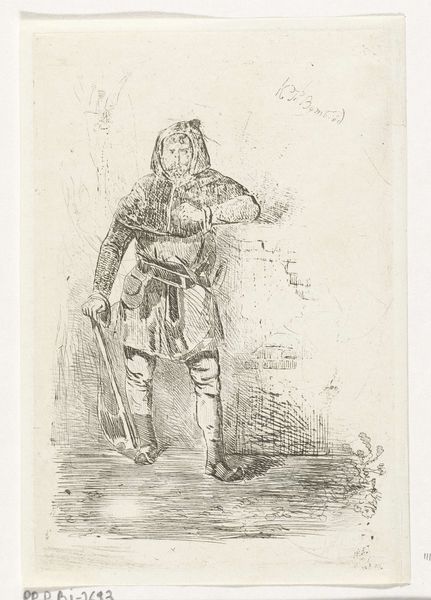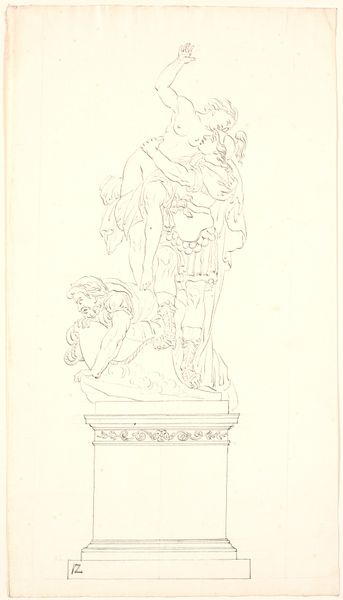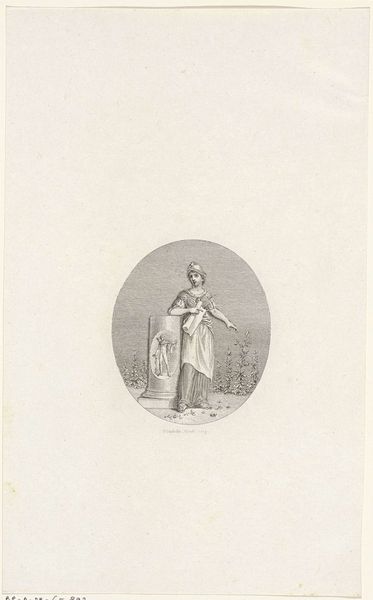
drawing, pencil
#
portrait
#
drawing
#
light pencil work
#
quirky sketch
#
pencil sketch
#
figuration
#
personal sketchbook
#
idea generation sketch
#
sketchwork
#
romanticism
#
pencil
#
sketchbook drawing
#
history-painting
#
sketchbook art
#
fantasy sketch
#
initial sketch
Copyright: Public Domain: Artvee
Curator: This is Eugène Delacroix's pencil drawing, "Tomb Effigies; A Man in a Suit of Armor beside a Child," created around 1825 to 1830. Editor: It feels like a whisper of history, doesn't it? A poignant, almost melancholic glimpse into a forgotten era. The stark contrast between the towering armored figure and the child evokes such a sense of vulnerability. Curator: Absolutely. Delacroix often explored themes of power, history, and their impact on the vulnerable. This work likely speaks to societal structures where individual identities, especially those of women and children, were shaped, and often suppressed, by patriarchal and aristocratic structures. The imposing suit of armor—a visual metaphor for masculine dominance—overshadows the child in prayer, subtly illustrating that power imbalance. Editor: The armor itself is so detailed; its presence suggests more than mere protection. It represents an ideal, a code, almost a burden carried through generations. But the child’s pose, hands clasped, directs my eye toward themes of innocence, humility and supplication. There's a clear dichotomy in play here, a dance between force and faith. Are these meant to be a father and child in prayer, perhaps? Curator: It's definitely worth considering the potential for a familial connection; however, one must always interpret Delacroix’s works considering how historical norms are presented. Looking at the construction of masculinity and vulnerability during this period is important here: does the contrast invite a subversive interpretation of these norms? Is the prayer challenging masculine rule? Editor: It is almost ghost-like; an ancestor who might stand witness to all the entreaties to a higher power, as though history itself can stand in intercession. Perhaps both the imposing armored figure and the trusting child become more representative than real. The power and weight of religious and chivalric ritual. Curator: A keen point. It underscores Delacroix’s masterful ability to employ simple strokes in exploring profound questions about societal values and power dynamics. The symbolism resonates powerfully. Editor: Indeed. Looking at it, you are left to think how symbols evolve and still carry such potency to comment on, question and explore humanity’s ever changing power dynamics.
Comments
No comments
Be the first to comment and join the conversation on the ultimate creative platform.
